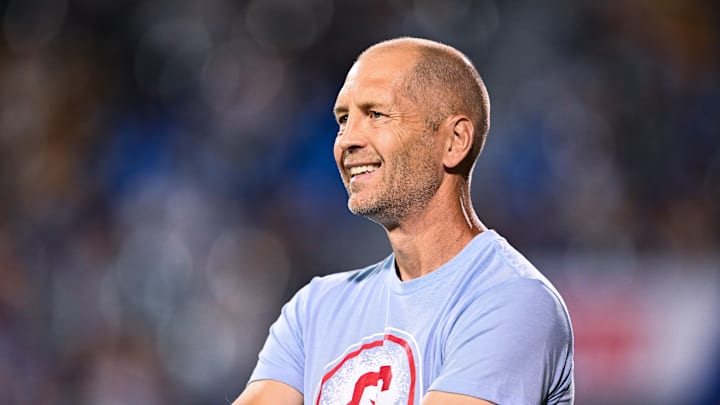The Chicago Fire have finally put an end to a very long drought. The team has made the MLS Cup Playoffs for the first time since 2017, and they did it in style, defeating Inter Miami 5–3.
In the center of this turnaround is Gregg Berhalter, less than a year removed from being fired as head coach of USMNT. The success he is having in Chicago is raising a difficult question: did US Soccer make a mistake too quickly moving on from him?
Chicago Fire reborn under Berhalter
When Berhalter was brought on as director of football and head coach in October of 2024, the Fire were a team that had persistently underachieved during nearly a decade of not qualifying for the playoffs.
In just one season, he has restructured the team through strategic recruiting and youth integration, instilled a possession-based approach, and given the team confidence. The payoff is that Chicago now has its best season in years and demonstrates that Berhalter’s approach, often criticized at the national level, can work given the right context.
Daily training, roster stability from week to week and an aligned front office allowed his philosophy to take root.
This was why it was so contentious at the USMNT level. At the national level, and under the compressed time table of a national camp with players from 10+ different clubs and leagues, the benefits of Berhalter’s organized style were less obvious.
His system requires a seamless cohesion among his players and the repetitions of practice and training to develop that cohesion. International football does not afford either of those luxuries. So, at Chicago, is a coach redeeming himself and demonstrating how context matters.
Was US Soccer too quick to move on?
For US Soccer the timing of Berhalter’s firing seemed justified. After a disappointing Copa América exit on home soil the program needed new energy and a fresh narrative heading into the 2026 World Cup.
Their focus was on tournament results, not long term potential, and Berhalter’s record of varied results led to some questions about whether they could overcome some of the top teams. The USMNT decided to part ways, believing that extension of his contract at that moment would be a stagnation.
However, now, The Fire’s playoff spot is muddying the waters. His ideas weren’t bad ideas, but were obviously dulled by the atmosphere surrounding the national team. If Berhalter can take a continuously underperforming MLS team into playoff contention in one season, maybe the plan for the USMNT project should have considered putting more time, institutional alignment, and trust into the project.
Chicago’s success does not undo the national team’s failures, though, but it does change the narrative and points to larger issues involving how US Soccer supports its coaches and whether they have institutional continuity between cycles.
